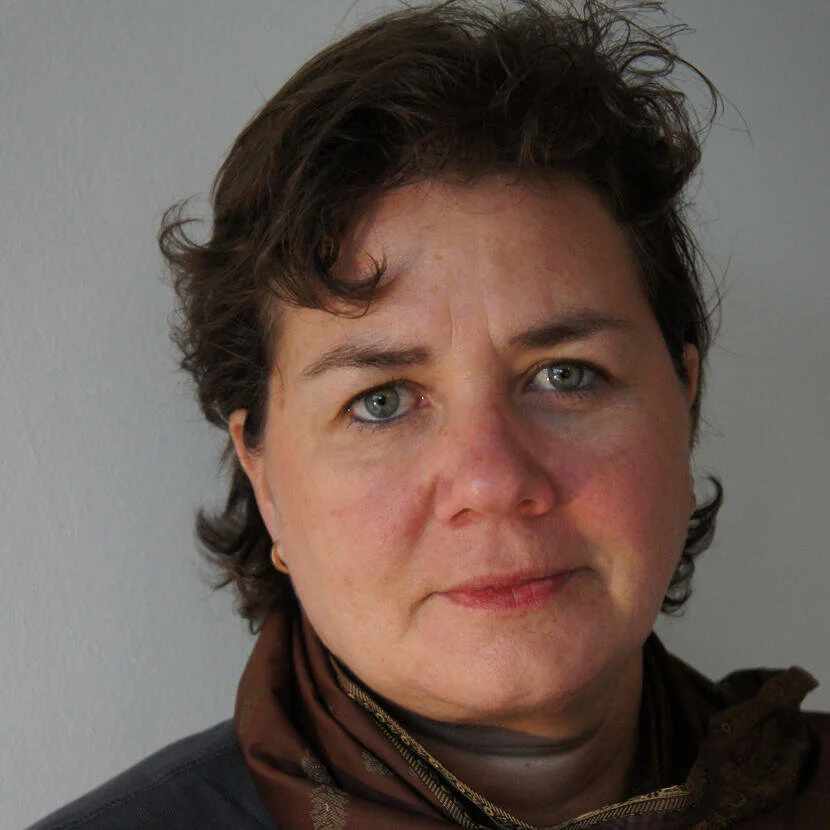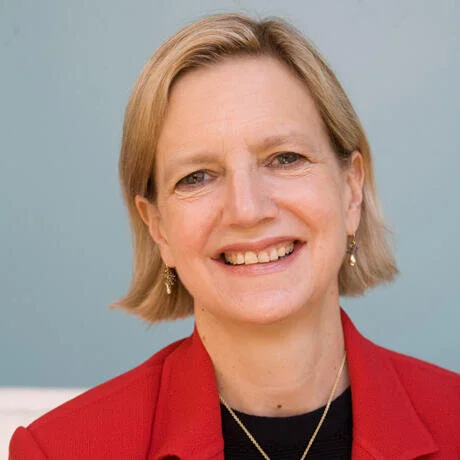Building Economic Resilience for Women in a Post-COVID-19 World
As countries and companies around the world struggle with building a post-COVID-19 world, we increasingly hear about the need for greater economic resilience to weather future shocks to the global economy. As Rana Foroohar noted in The Financial Times in early May: “If the past 40 years were about efficiency, the next 40 will be about resiliency.” But what does economic resilience look like for the millions of women around the world who have been disproportionately affected by unemployment in such key sectors as apparel and tourism - not to mention in the informal sector and many parts of the gig economy?
As individuals who have been working to bridge the work of activists on women’s economic rights and justice with the growing corporate engagement around women’s economic empowerment, we see the COVID-19 pandemic as offering a window of opportunity to bring together stakeholders from across sectors to integrate these streams of work in meaningful ways to build a world where women - and communities - will have greater economic resilience to weather future shocks.
For years, women’s rights organizations have been advocating for economic justice - campaigning for equal pay, for safe working conditions that take into account women’s particular needs, for labor rights for informal workers the majority of whom are women, for prohibitions on gender-based violence in the workplace and beyond, and for an increase in women’s voices in economic decisions in communities and countries. Their focus in the economic sphere has largely been on advancing rights and ensuring equal treatment, with less emphasis on building livelihoods and economic independence.
At the same time, as evidence showing the powerful positive impact that women’s equal participation has had on the economy has grown, a number of companies have begun to view women’s economic empowerment and advancement in their workplaces and value chains as critical to corporate success. Nearly 3,000 companies have signed the U.N.’s Women’s Empowerment Principles, and a number of those are actively instituting policies and programs to address issues of sexual harassment, pay equity, leadership pathways and more. A number of recent reports have drawn attention to the business case for addressing gender-based violence and reproductive health, and more broadly for gender equity as a long-term sustainability strategy. For the corporate sector, the focus has largely been on providing jobs and equal opportunities and resources to women - principally in the formal economy and in their own workplaces.
What the COVID-19 pandemic has laid bare is the fragility of women’s livelihoods and economic independence in the absence of laws, policies, attitudes and norms that support gender equality and women’s empowerment more holistically. Without strong labor laws (and governments willing to enforce them), factory workers have little protection against job loss and few social protections to cushion economic shocks. Without shifts in attitudes and norms that assume women are the world’s primary caregivers, when family members are ill, a women’s unpaid care burden increases, and she may be forced to give up paid employment as a result. When women lack internet access, they are deprived of a critical resource to gain access to new markets, credit or job training, or to find services to deal with domestic violence or address reproductive or maternal healthcare needs, all issues which have significant impact on women’s ability to be productive participants in the economy. And the well-documented increase in gender-based violence in lockdown situations in all parts of the world will only aggravate the debilitating effects that gender-based violence has on women’s productivity, even for those women who are lucky enough to be able to return to the workplace.
In order to overcome the disproportionate economic devastation that COVID-19 has had and will continue to have on millions of women around the world and to help rebuild a post-COVID-19 world where women play an equal role with men in the global economy, we need to align the work being done on women’s economic empowerment with efforts to advance economic justice and rights. We need to reframe these issues as being about the broader concept of economic resilience. They need to be thought of in terms of women’s ability to make economic decisions, control economic resources, access education, jobs, information, opportunities and markets equally with men, all in the context of legal systems and norms that support and enforce true gender equity. This will require a new kind of engagement from all sectors to overcome historic distrust and get out of siloed workstreams. It will also require work to be embedded locally, considering the specific challenges and opportunities that the post-COVID-19 world will present in different contexts around the world, whether in addressing women’s unequal unpaid care burden and the ways gender-based violence plays out in different settings, accessing jobs and opportunities in light of layoffs or furloughs and the shifting nature of work, or reshaping laws and policies on equal pay, leadership pathways or workplace flexibility.
Building multi-stakeholder coalitions is never easy. Particularly in the economic context, the lack of a common language -- including around the meaning of the terms economic empowerment and economic justice -- have often limited collaboration between companies, governments and grassroots rights organizations. Companies and governments sometimes fear the activism of women’s rights organizations, and activists in those organizations are often wary of the power and motives of companies and governments. There is also concern with working with smaller-scale, grassroots organizations by companies, and equal anxiety on the part of those organizations with the scale of big companies.
Yet we have seen how well-managed processes can lead to greater transparency and facilitate building mutual trust and an understanding of shared interests and opportunities, resulting in meaningful partnerships that are transformative for women, for business and for societies. For example, the work that the Central American Women’s Fund (FCAM) has done with INTEGRARSE and other business networks in Central America produced a ground-breaking report on corporate social responsibility and women’s rights in Central America and led to new cross-sector relationships to address gender-based violence in the workplace (and beyond) and strategies to empower women and advance their rights in that region.
Moreover, we have witnessed the growth of a new generation of feminists who are creating change for women and girls in a variety of settings across movements and across sectors. This generation has its own understanding of feminism as a lived reality and is communicating and sharing experiences in new ways and speaking a more common language on economic rights and empowerment, as well as on gender equality more broadly.
One temporary fund launched in May in response to the COVID-19 crisis, The Global Resilience Fund for Girls and Young Women, reflects the power of cross-sector and cross-generational feminism. It brought together funders as diverse as private and corporate foundations, large INGOs and small women’s funds to quickly make flexible funding available to girl and young women-led groups around the world. To date, this fund has received over 1000 applications, completed two of three planned rounds of funding, distributed grants to 129 groups in 67 countries working on the issues that are most pressing for these girls in this pandemic moment - ranging from gender-based violence to sexual and reproductive health, from economic resilience to LGBTQI rights. The third and final round of funding will be leveraged to address gaps in geographies or issues underfunded due to a myriad of intersectionality challenges exasperated by COVID-19. Moreover, the analytics from the fund and its participatory grantmaking process has produced a wealth of relevant information for funders and other stakeholders interested in the issues affecting girls and women during the pandemic at very local levels.
Given that we are over 100 years away from achieving gender equality, we need to take advantage of the disruption caused by the COVID-19 pandemic -- and the light it has shed on the economic inequities faced by women and girls -- and seize opportunities to work across sectors in equitable, transparent and mutually beneficial ways to harness the broadest range of skills, networks, knowledge and resources to build a sustainable future of economic resilience for all.
About the Authors:
Maria Bobenrieth is the Executive Director of Women Win, a leading global women's fund based in Amsterdam. Prior to her work with Women Win, Maria served Global Director of Community Investments at Nike. Maria has a strong professional and personal background in international business and community development. Born in Chile and raised and educated in the US, Maria has lived in The Netherlands since 2001.
Aditi Mohapatra is a Managing Director of BSR. Based in New York, Aditi works leads BSR’s global portfolio of work on women’s empowerment across consulting, collaboration, and research. Prior to BSR, Aditi spent several years at Calvert Investment Management, among other things leading corporate engagements on the subjects of gender, corporate governance and gender equality, including the advancement of the Calvert Women’s Principles.
Marissa Wesely is a co-founder of Win-Win Strategies (WWS), which works across sectors to catalyze a transformative approach to sustained women’s economic empowerment. She is a senior advisor to Women Win, into which WWS merged in 2019. Prior to the merger, Marissa was the Chief Executive Officer of WWS. Marissa is a member of the Council on Foreign Relations and serves on the boards of directors of the Canadian Equality Fund and of Root Capital. She was a 2014 Fellow in Harvard's Advanced Leadership Initiative, and practiced corporate law for over 30 years, as a partner at the global firm of Simpson Thacher & Bartlett LLP.




